Subscribe to our ▶️ YouTube channel 🔴 for the latest videos, updates, and tips.
Division of Whole Numbers
Division of whole numbers is discussed here step by step.
1. Division is repeated subtraction.
(a) 25 ÷ 5 = 5
(Repeated Subtraction)
(i) 25 - 5 = 20
(ii) 20 - 5 = 15
(iii) 15 - 5 =10
(iv) 10 - 5 = 5
(v) 5 - 5 = 0
(b) 10 ÷ 2 = 5
(Repeated Subtraction)
(i) 10 - 2 = 8
(ii) 8 - 2 = 6
(iii) 6 - 2 = 4
(iv) 4 - 2 = 2
(v) 2 - 2 = 0
(c) 50 ÷ 10 = 5
(Repeated Subtraction)
(i) 50 - 10 = 40.
(ii) 40 - 10 = 30
(iii) 30 - 10 = 20
(iv) 20 - 10 = 10
(v) 10 - 10 = 0
2. Division is the inverse of multiplication.
(a) (i) 12 × 10 = 120
(ii) 120 ÷ 10= 12
(iii) 120 ÷ 12 = 10
(b) (i) 25 × 5 = 125
(ii) 125 ÷ 5 = 25
(iii) 125 ÷ 25 = 5
3. Relation between Dividend, Divisor, Quotient and Remainder is.
Dividend = Divisor × Quotient + Remainder
To understand the relation between dividend, divisor, quotient
and remainder let us follow the following examples:
(a) Divide 537809 by 35 and find the quotient and remainder.
We need to divide the dividend i.e. 537809 by the divisor i.e. 35 to get the quotient and remainder.
5 cannot be divided by 35 as 5 < 35. So, we will move to the next digit of the dividend i.e. 3 and now we have 53 which can be divided by 35 as 53 > 35. We first divide 53 by 35. 35 into 53 is 1 leaving 18.
Then we bring down the next digit of the dividend i.e. 7 and we have 187. Now we divide 187 by 35 so, 35 into 187 is 5 leaving 12.
Again we bring down the next digit of the dividend i.e. 8 and we have 128. Now we divide 128 by 35 so, 35 into 128 is 3 leaving 23.
Similarly, again we bring down the next digit of the dividend i.e. 0 and we have 230. Now we divide 230 by 35 so, 35 into 230 is 6 leaving 20.
And at last we bring down the last digit of the dividend i.e. 9 and we have 209. So, we divide 209 by 35 then, 35 into 209 is 5 leaving 34.
Check the answer of the division:
Dividend = Divisor × Quotient + Remainder
537809 = 35 × 15365 + 34
537809 = 537775 + 34
537809 = 537809
(b) Divide 86228364 by 2768 and check the answer.
We need to divide the dividend i.e. 86228364 by the divisor i.e. 2768 to get the quotient and remainder.
8 cannot be divided by 2768 as 8 < 2768. So, we will move to the second digit of the dividend i.e. 6 and now we have 86 which cannot be divided by 2768 as 86 < 2768. So, we will move to the third digit of the dividend i.e. 2 and now we have 862 which also cannot be divided by 2768 as 862 < 2768. So, we will move to the fourth digit of the dividend i.e. 2 and now we have 8622 which can be divided by 2768 as 8622 > 2768. We first divide 8622 by 2768. 2768 into 8622 is 3 leaving 318.
Then we bring down the fifth digit of the dividend i.e. 8 and we have 3188. Now we divide 3188 by 2768 so, 2768 into 3188 is 1 leaving 420.
Again we bring down the sixth digit of the dividend i.e. 3 and we have 4203. Now we divide 4203 by 2768 so, 2768 into 4203 is 1 leaving 1435.
Similarly, again we bring down the seventh digit of the dividend i.e. 6 and we have 14356. Now we divide 14356 by 2768 so, 2768 into 14356 is 5 leaving 516.
And at last we bring down the last digit of the dividend i.e. 4 and we have 5164. So, we divide 5164 by 2768 then, 2768 into 5164 is 1 leaving 2396.
Now to check the answer of the division:
Dividend = Divisor × Quotient + Remainder
86228364 = 2768 × 31151 + 2396
86228364 = 86225968 + 2396
86228364 = 86228364
4. Divide 682592 by 32 and verify the answer.
Solution:
Hence, 682592 ÷ 32 =21331
Now to check the answer of the division:
Divisor × Quotient + Remainder = Dividend
32 × 21331 + 0 = 682592
Division of Large Numbers
We follow the usual method of division to divide large numbers.
Let us consider some examples.
Division of 6-Digit Numbers by 3-Digit Numbers:
1. Divide 452458 by 125 and verify your answer.
Solution:
452458 ÷ 125 gives the quotient 3619 and remainder 83.
Verifying the Answer:
We have, 125 × 3619 + 83 = 452375 + 83 = 452458, which is the given dividend.
Hence, the answer is correct.
Division of 7-Digit Number by 1-Digit Number (Indian Numbering System)
2. Divide 12,46,560 by 8
Solution:
Therefore, the quotient is 1,55,820.
Division of 7-Digit Number by 2-Digit Number (International Numbering System)
3. Divide 3,688,396 by 16
Solution:
Therefore, the quotient is 230,524 and the remainder is 12.
Division of 7-Digit Number by 3-Digit Number (Indian Numbering System)
4. Divide 63,85,429 by 142
Solution:
Therefore, the quotient is 44,967 and the remainder is 115.
Division of 7-Digit Number by 3-Digit Number (International Numbering System)
5. Divide 3,295,552 by 250
Solution:
Therefore, the quotient is 13,182 and the remainder is 52.
Division by Numerals Ending With Zeroes:
We know that division is the inverse operation of multiplication. When we divide a number by 10, 100 or 1000, we take away as many zeroes from dividend as in the divisor.
For example:
1. Divide by 10
60 ÷ 10 = 6
600 ÷ 10 = 60
6000 ÷ 10 = 600
60000 ÷ 10 = 6000
2. Divide by 100
600 ÷ 100 = 6
6000 ÷ 100 = 60
60000 ÷ 100 = 600
600000 ÷ 100 = 6000
3. Divide by 1000
6000 ÷ 1000 = 6
60000 ÷ 1000 = 60
600000 ÷ 1000 = 600
6000000 ÷ 1000 = 6000
Worksheet on Division of Whole Numbers
Questions and Answers on Division of Whole Numbers:
I. Find the quotient and check the answers in each of the following:
(i) 22786 ÷ 3
(ii) 389458 ÷ 7
(iii) 6872419 ÷ 24
(iv) 7714592 ÷ 32
(v) 9600729 ÷ 84
(vi) 11682000 ÷ 125
(vii) 66921036 ÷ 170
(viii) 6017635 ÷ 580
(ix) 7654981 ÷ 53
Answers:
(i) Quotient = 7595; Remainder = 1.
(ii) Quotient = 55636; Remainder = 6.
(iii) Quotient = 286350; Remainder = 19.
(iv) Quotient = 241081; Remainder = 0.
(v) Quotient = 114294; Remainder = 33.
(vi) Quotient = 93456; Remainder = 0.
(vii) Quotient = 393653; Remainder = 26.
(viii) Quotient = 10375; Remainder = 135.
(ix) Quotient = 144433; Remainder = 32.
2. Find the quotient and remainder for the given.
(i) 8703364 ÷ 10
(ii) 6933453 ÷ 10000
(iii) 459827 ÷ 100
(iv) 7768232 ÷ 100000
(v) 5672861 ÷ 1000
(vi) 97367140 ÷ 10000
Answers:
(i) Quotient = 870336; Remainder = 4.
(ii) Quotient = 693; Remainder = 3453.
(iii) Quotient = 4598; Remainder = 27.
(iv) Quotient = 77; Remainder = 68232.
(v) Quotient = 5672; Remainder = 861.
(vi) Quotient = 9736; Remainder = 7140.
3. Fill In the blanks.
(i) 4928831 ÷ 1 = ________
(ii) 6582110 × ________ = 6582110
(iii) 5082240 ÷ 10 = ________
(iv) ________ × 0 = 0
(v) 7433925 ÷ 7433925 = ________
(vi) 8953022 + ________ = 8953023
(vii) 3800452 × (0 × 883245) = ________
Answers:
(i) 4928831
(ii) 1
(iii) 508224
(iv) Any number
(v) 1
(vi) 1
(vii) 0
Word Problems on Division of Whole Numbers:
4. 125896 tiles are to be loaded in 8 vehicles equally. How many tiles are loaded in each vehicle?
Answer: 15737 tiles
5. 3792780 voters are to be equally distributed in 18 blocks. How many voters will there be in each block?
Answer: 210710 voters
- Addition Of Whole Numbers.
- Word Problems on Addition and Subtraction of Whole Numbers
- Subtraction Of Whole Numbers.
- Multiplication Of Whole Numbers.
- Properties Of Multiplication.
- Division Of Whole Numbers.
- Properties Of Division.
- Word Problems on Multiplication and Division of Whole Numbers
- Worksheet on Addition and Subtraction of Large Numbers
- Worksheet on Multiplication and Division of Large Numbers
- Worksheet on Operations On Whole Numbers
From Division of Whole Numbers to HOME PAGE
Didn't find what you were looking for? Or want to know more information about Math Only Math. Use this Google Search to find what you need.
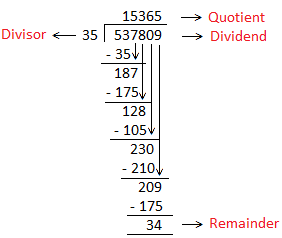
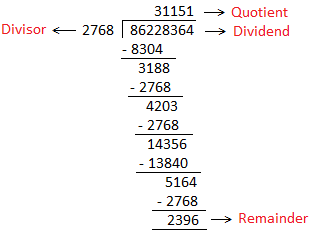
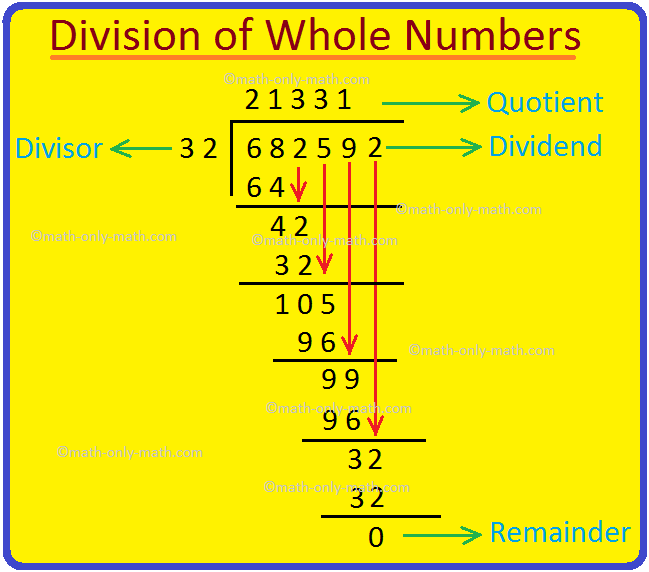
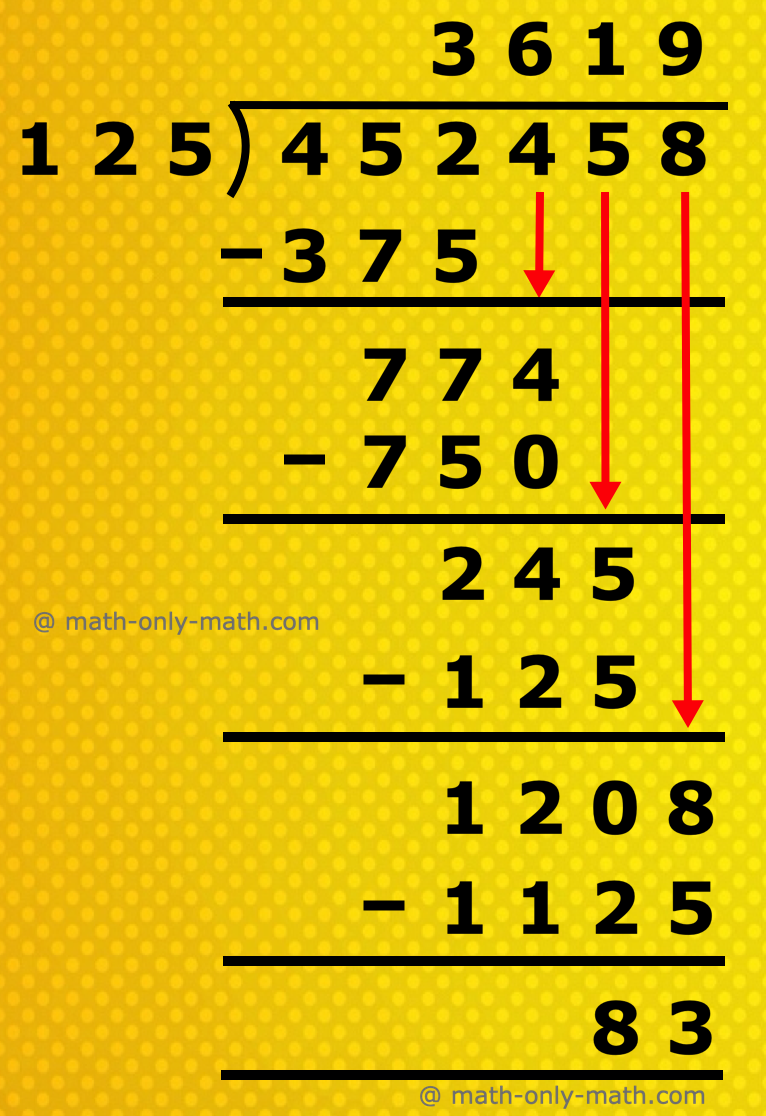
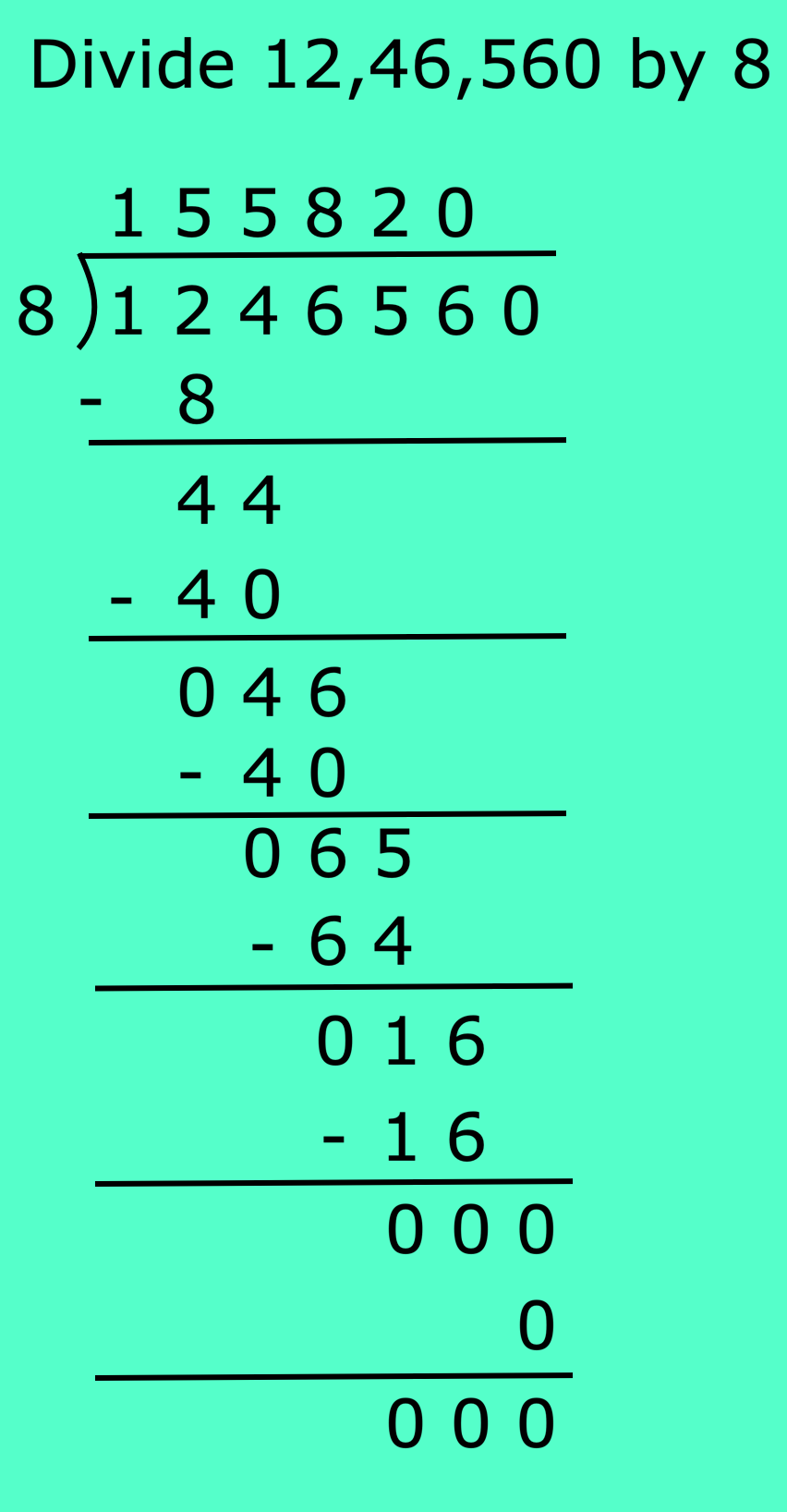
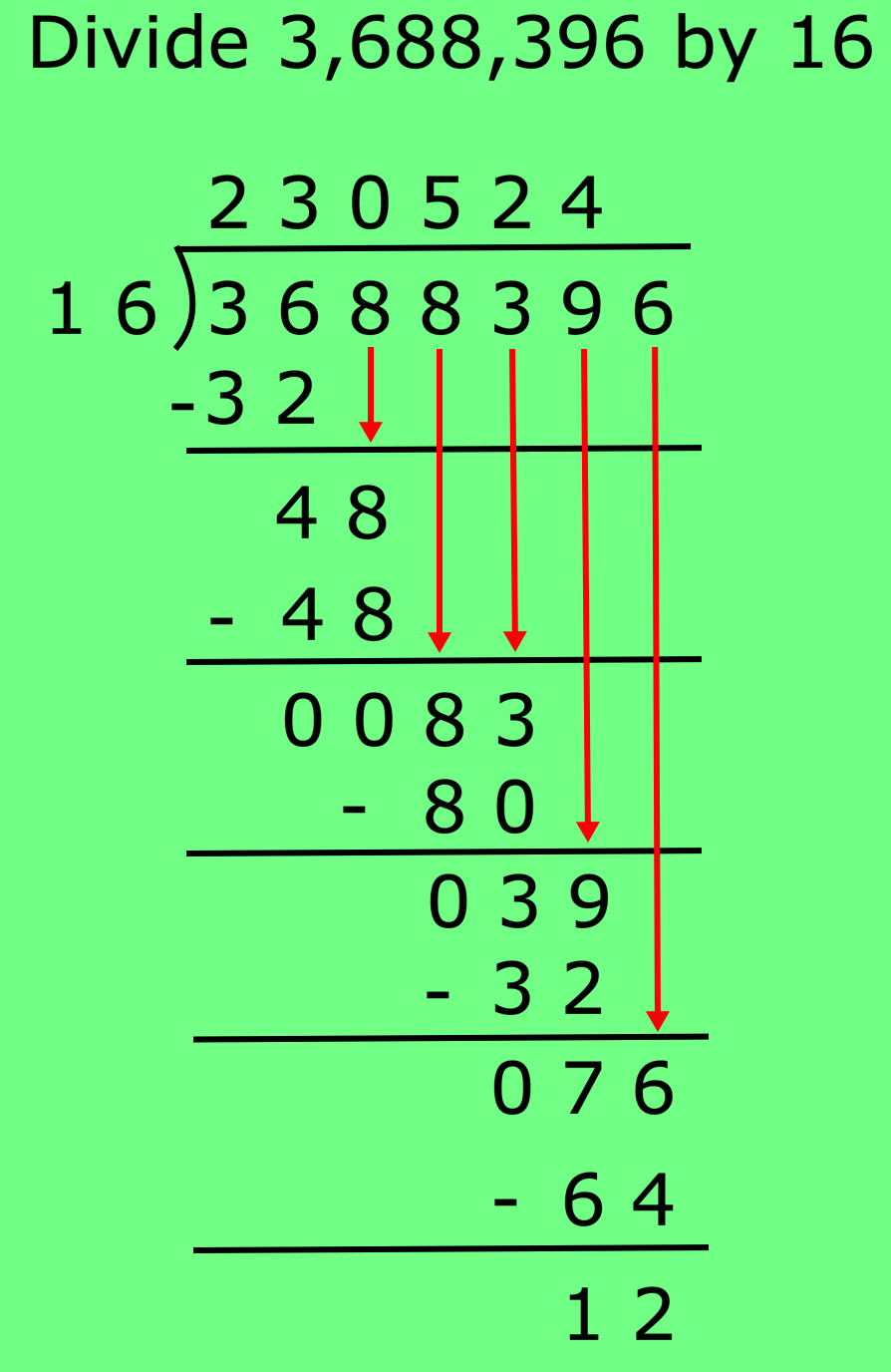
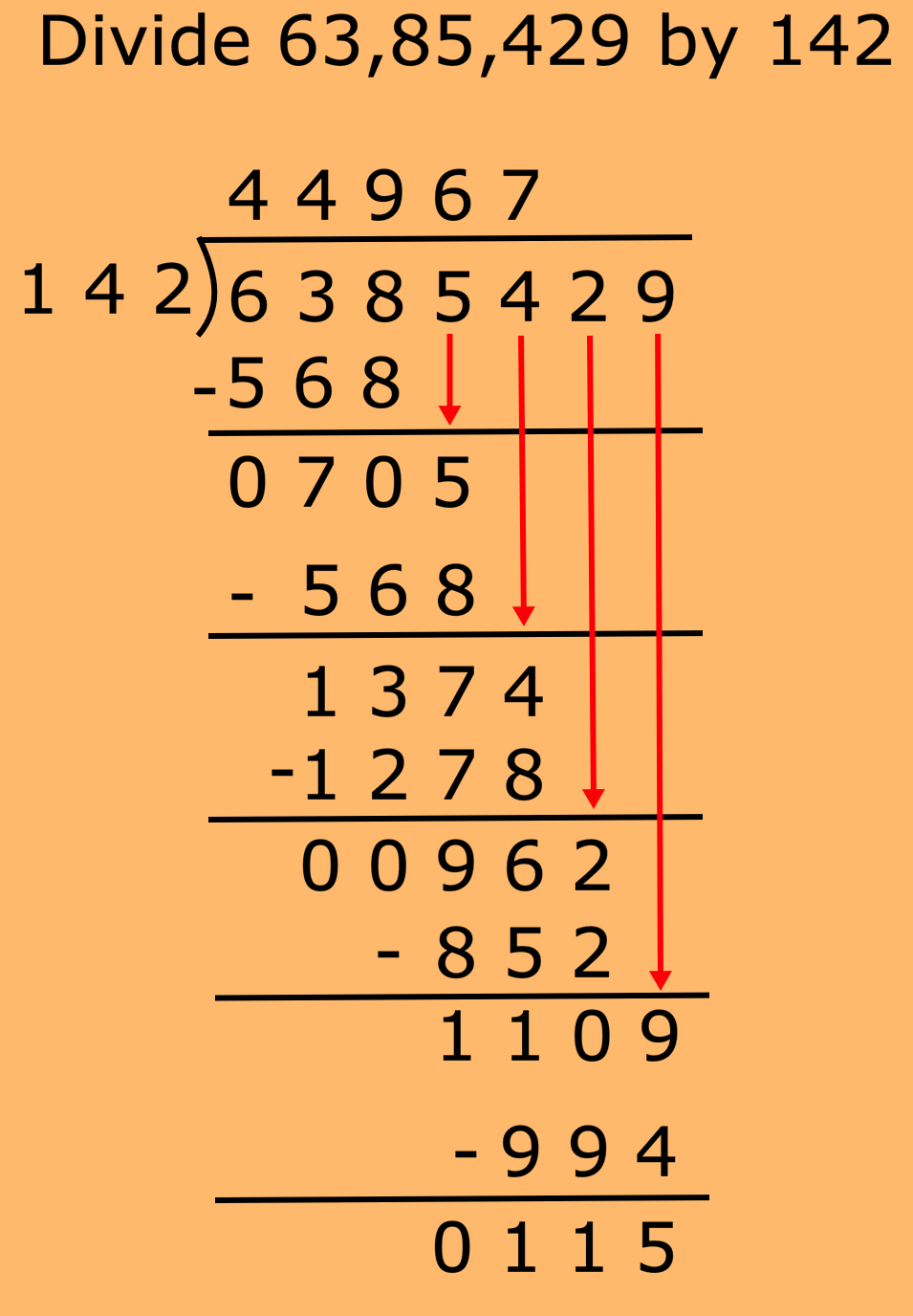
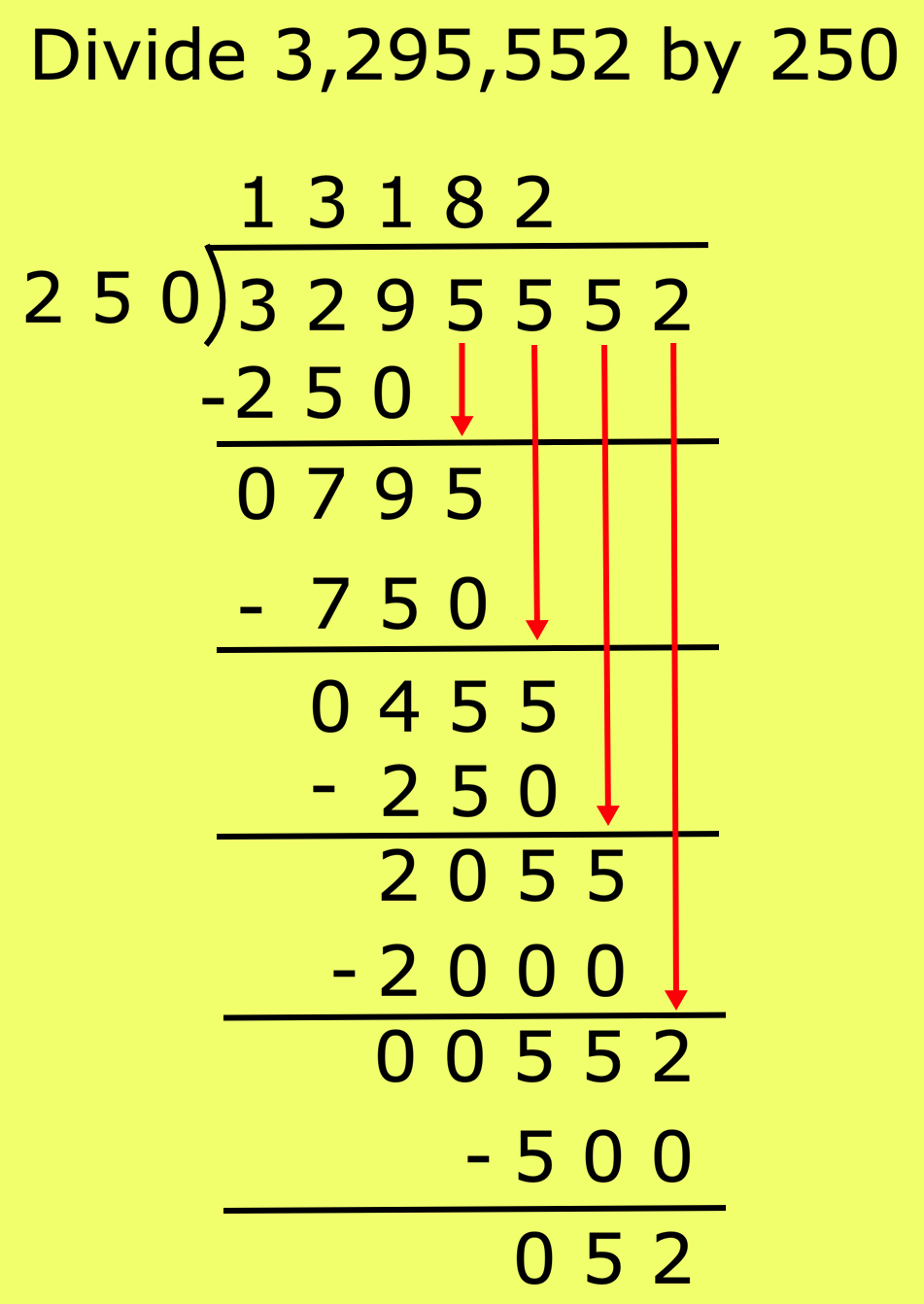


New! Comments
Have your say about what you just read! Leave me a comment in the box below. Ask a Question or Answer a Question.